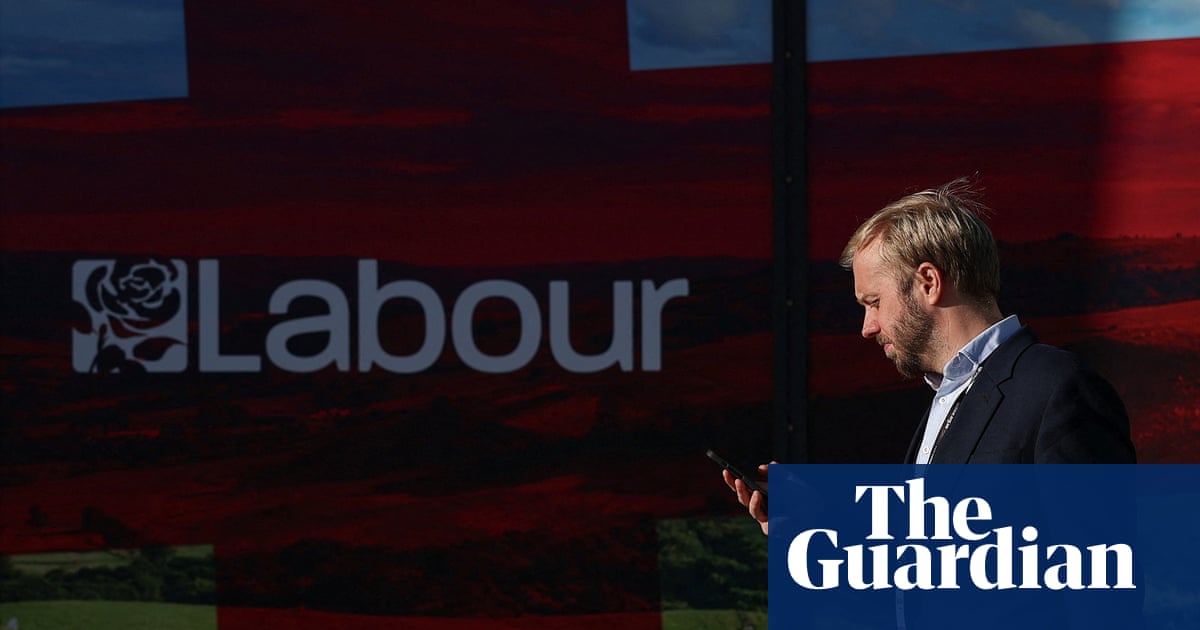The Labour conference will vote on whether it believes Israel is committing a genocide in Gaza and whether the UK-Israel trade agreement should be suspended in what could become a significant conference showdown.
Labour members are preparing to use the vote on Monday to highlight their unease with the government’s refusal to conclude that Israel is committing a genocide in Gaza.
Members debated the two emergency motions, one of which was proposed by the public service union Unison and seconded by Aslef, the train drivers’ union. It urged the Labour government to “employ all means reasonably available to it to prevent the commission of genocide in Gaza”, “fully suspend the arms trade with Israel and the UK-Israel trade and partnership agreement”, and for Labour to “accept the findings of the UN commission of inquiry”.
This motion, supported by 18 CLPs and affiliates including TSSA, also called on the UK government to “apply further sanctions to put pressure on the Israeli government to respect international law” and to “ensure individuals and corporations in the UK are not involved in aiding and assisting the genocide”.
A separate leadership-backed motion largely endorsing government policy to date and claiming a UN-commissioned inquiry found only “a risk of a genocide in Gaza” will also be voted on.
This interpretation was described as deliberately misleading by those calling for tougher action against Israel. They said the UN report found genocide was happening and that this required meaningful action to end the risk of British complicity.
The Labour MP John McDonnell said: “I am absolutely horrified that the minister [Hamish Falconer] and the leadership is seeking to deliberately mislead Labour members. The UN commission of inquiry was unequivocal. It said Israel is committing a genocide in Gaza.”
One union source said that while there had been some “back and forth” about its proposed motion, there was no particular anger, and most unions were onboard with the agreed wording.
A Labour source said: “It was a civilised, totally collegiate discussion which included some respectful disagreement.”
During the debate, Christina McAnea, the Unison general secretary, asked all members to vote for the union-backed motion against a genocide in Gaza, and against the government -acked motion. She told conference: “This is genocide. But if we wait for this to be confirmed by a court, it will be too late, because it’s already happening as we sit here.”
But the debate erupted into fury as seven delegates not in favour of the motion were selected to speak, prompting activists to accuse Labour of silencing its members.
The vote comes as ministers are looking at a fresh assessment prepared by officials as to whether there is a “serious risk” that Israel is committing genocide in Gaza.
Ministers have asked MPs to not only report on the assessment’s findings but to give an explanation. If it is found that there is “a serious risk of a genocide”, the UK faces obligations as a signatory to the genocide convention to act to protect the Palestinian people.
The assessment, taking in evidence until June, is at least four weeks behind the schedule ministers had set to make evaluations of whether Israel’s conduct means there is a serious risk of genocide.
The findings, once disclosed, are likely to prove controversial since it will either enrage the Israeli government or cause disbelief in large sections of the Labour party membership.
The Spanish prime minister, Pedro Sánchez, has accused Israel of committing genocide, and the charge is now commonplace among leaders in the global south. UK ministers have described what is happening inside Gaza as grotesque but have not said there is even a serious risk of a genocide.
Ministers point out there is a high evidential bar since a genocide requires proof of intent to destroy the Palestinian population in whole or in part.
The Israeli prime minister, Benjamin Netanyahu, speaking to the UN general assembly on Friday, said Israel was not driving Palestinians out of Gaza, and could not therefore be accused of a genocide.
 Dozens walk out during Benjamin Netanyahu’s United Nations speech – video
Dozens walk out during Benjamin Netanyahu’s United Nations speech – video
More than 60,000 Palestinians have been killed by the Israeli military since Hamas invaded Israel in October 2023, according to the Hamas-run ministry of health.
The government is required by law to make an assessment of the risk of genocide, owing to its obligations as a signatory to the genocide convention.
Speaking to the business select committee a fortnight ago, Falconer said the government was required to make a series of risk assessments, including one concerning the risk of genocide.
He added that, until recently, the former foreign secretary David Lammy “has not been able to make out through the process that there is a serious risk of a genocide”.
He stressed the government’s internal risk assessment was different from a determination of genocide, something only national and international courts could undertake.
He said the assessments were made on a six- to eight-week rolling basis, adding: “There is another assessment before the foreign secretary now that will make an assessment against the tests of the genocide convention.”
Given the assessments are undertaken at least once every two months, and the latest report includes evidence only until the end of June, the report should have been completed by the end of August.
Asked to report on the reasons in its risk assessment, Falconer said: “We will do our best to at least state why, based on what she [the foreign secretary, Yvette Cooper] finds off the back of this assessment. That is being prepared for her at the moment.”

